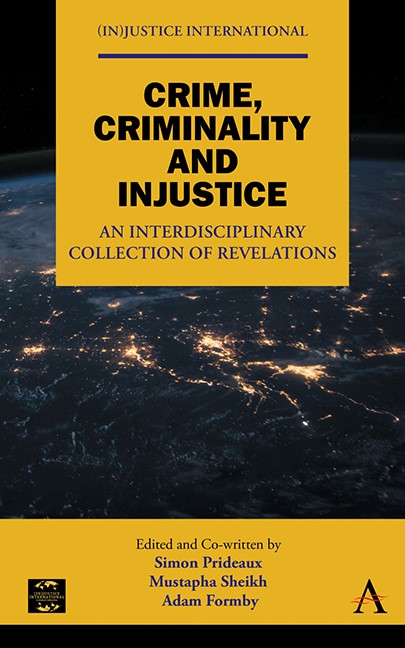Book contents
- Frontmatter
- Dedication
- Contents
- Acknowledgements
- List of Editors and Contributors
- Editor’s Introduction to the Book
- Part One Incarceration, Cultural Destruction and Ecocide: The Alienation of Ethnic Minorities, Nature and Indigenous Peoples
- Part Two The Impoverishment, Exclusion and Maltreatment of the Working Poor
- Part Three Disability, Poverty and Neglect
- Part Four Youth, Gender, Migration and Human Trafficking
- Concluding Remarks
- Index
Concluding Remarks
Published online by Cambridge University Press: 14 November 2023
- Frontmatter
- Dedication
- Contents
- Acknowledgements
- List of Editors and Contributors
- Editor’s Introduction to the Book
- Part One Incarceration, Cultural Destruction and Ecocide: The Alienation of Ethnic Minorities, Nature and Indigenous Peoples
- Part Two The Impoverishment, Exclusion and Maltreatment of the Working Poor
- Part Three Disability, Poverty and Neglect
- Part Four Youth, Gender, Migration and Human Trafficking
- Concluding Remarks
- Index
Summary
The collected chapters of this volume illustrate in full starkness the heterogeneity of injustice. Each points up those who are marked as different – for their culture, ethnicity, phenotype, sexual orientation or otherwise – and the forms of oppression enacted upon them because of this difference. The reader is presented with a spectrum of oppression that ranges from simple otherisation to genocide. The very scope and range of injustice can easily bewilder, and its apparent ubiquity can lead to the assumption that relations of domination and exploitation, and the conditions that sustain them, are inevitable. The truth is that such relations and conditions were never historically and are not now inevitable. The reason for this is that the dehumanisation which is enveloped by relations of domination and exploitation elicits within those who are oppressed a determination for humanisation, a determination for emancipation and a drive to overcome alienation. As Freire (2017:18) put it, ‘this struggle is possible only because dehumanisation, although a concrete historical fact, is not a given destiny but the result of an unjust order that engenders violence in the oppressors, which in turn dehumanises the oppressed’. Most importantly, for our purposes and so as not to fall into a state of despair, Freire (2017:18) stated categorically that because ‘it is a distortion of being more fully human, sooner or later being made less fully human leads the oppressed to struggle against those who made them so’. Gil (2013:7) also affirmed this law of struggle, adding, importantly the role of consciousness building:
People have often challenged destructive practices and conditions, and they are likely to do so again, by organising liberation movements and spreading critical consciousness – a prerequisite for collective action toward fundamental social change.
In the introduction to this volume, emphasis was placed on the value of bringing to the gaze the lived experiences of those at the lowest intersections of injustice – Indigenous peoples, ethnic minorities, refugees, people with disabilities, the youth, women and children and the poor. It has certainly done this. However, in its own way, this volume also seeks to contribute to the pedagogy of the oppressed – to contribute to what Freire terms conscientizaçao, or the form of learning which leads to a perception of the social, political and economic conditions that are constitutive of oppression and the learning required to take action against these elements of reality.
- Type
- Chapter
- Information
- Crime, Criminality and InjusticeAn Interdisciplinary Collection of Revelations, pp. 211 - 212Publisher: Anthem PressPrint publication year: 2023

